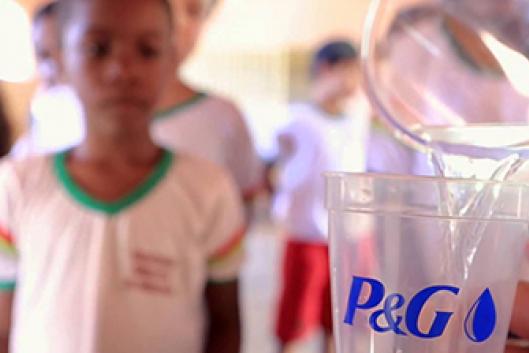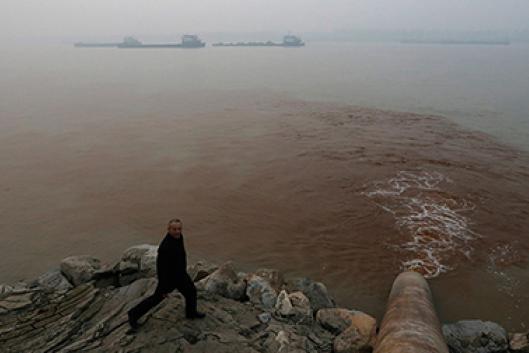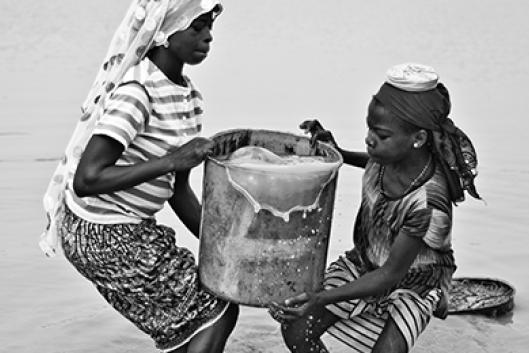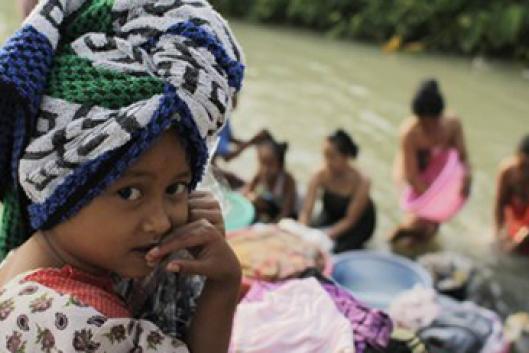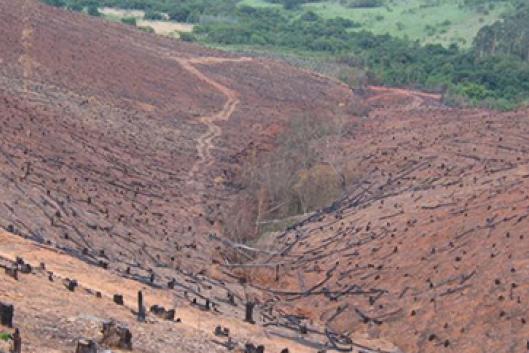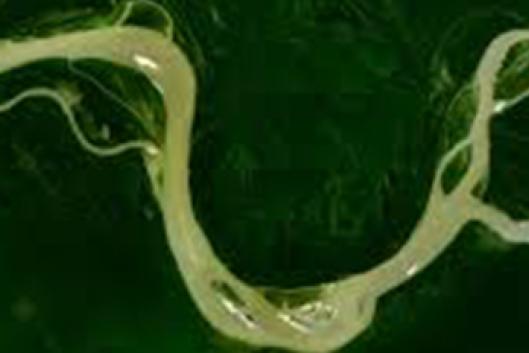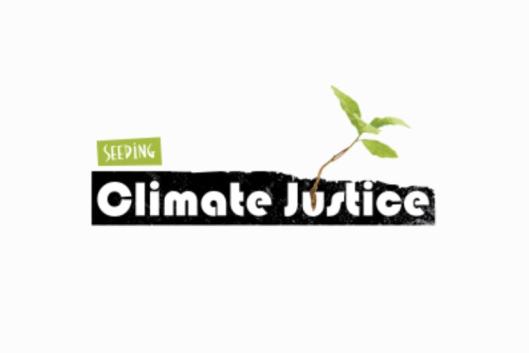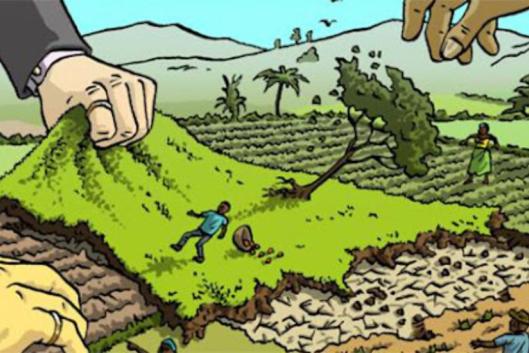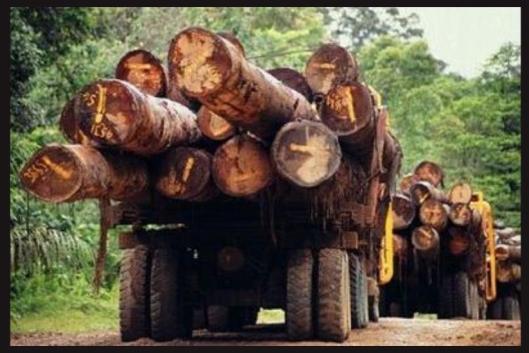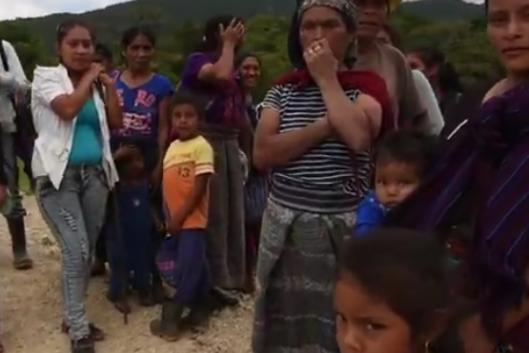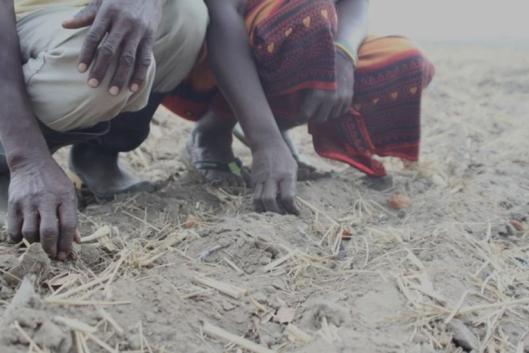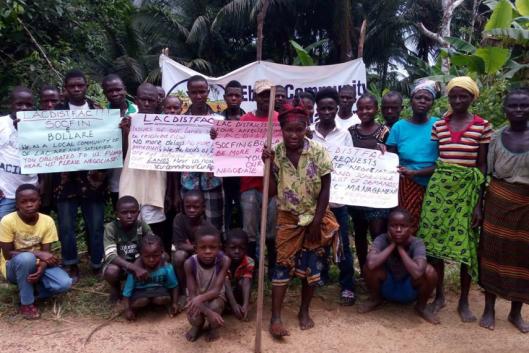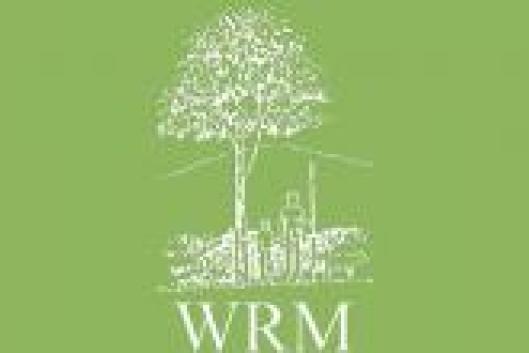Behind many appealing products in the supermarkets of major urban centers in the world, there are countless silenced stories. Behind the good-looking "green label" certification, the content of products and the large amount of paper wrap, there's a story to tell about consumption and water pollution.
Bulletin Issue 214 – May 2015
Water theft: an economic model that dries up life
WRM Bulletin
214
May 2015
OUR VIEWPOINT
WATER THEFT: AN ECONOMIC MODEL THAT DRIES UP LIFE
-
3 June 2015The economic model of over-production and consumption directly affects the access of local populations to drinking water as well as their livelihoods. Water, essential to life and considered “sacred” by many traditional peoples, is seized from the territories.
-
3 June 2015The idea of water as a “resource” keeps us far away from conceiving the whole: the living cycles.
-
3 June 2015People in Indonesia, particularly in the Banten province, on the island of Java, demand that the government enforce the law and restore river catchment areas (watersheds or river basins) after years of water contamination of the Ciujung river. The contamination is caused by Asia Pulp and Paper, one of the main pulp and paper company active in Indonesia, releasing waste into the river.
-
3 June 2015Vast volumes of water are being misappropriated by “silent” thieves that operate 24 hours a day, 365 days a year. Corporations setting up monoculture plantations are the culprits, but, how can planted trees behave so differently from natural forests?
-
3 June 2015In the past few years, mechanisms aimed to transform fundamental natural components of commons (biodiversity, land, water, forests and their ecological functions, etc…) into tradable financial assets have been expanding rapidly. A growing number of civil society groups therefore strongly engage in trying to unveil the mechanisms, logics and motivations behind the financialization process(es) and what they might mean for communities. In order to revert this trend which jeopardizes the life of millions of people all over the world, it is key to identify driving forces and leading actors.
PEOPLES IN ACTION
-
3 June 2015Climate justice advocates and community and movements’ representatives met in Maputo, Mozambique from 21-23 April 2015 to reflect on the roots, manifestations and impacts of climate change on Africa and on the responses needed in the face of the crises. The conference agreed, among others, to reject false solutions to the climate crisis, like REDD, industrial tree plantations, genetic engineering, agrofuels and geoengineering,
-
3 June 2015The Africa Social Forum that took place in Dakar in October 2014 released the Declaration against Water and Land grabbing, which affirms that “land grabbing is always accompanied by water grabbing”. During the World Social Forum in Tunis in March 2015, the dialogue among African groups continued with movements and organizations from all over the world in order to broaden this convergence.
-
3 June 2015Three indigenous leaders were ambushed by gunmen hired by loggers and landowners, as reported by the Indigenous Missionary Council (CIMI). These deaths would respond to a revenge for actions and measures that different ethnic groups in eastern Brazil have been carrying out in recent years to eradicate deforestation in their territories. Cleber Cesar Buzatt, Executive Secretary of CIMI, said “these crimes are not isolated; they are within a macro political context of a long process of incitement to hatred and violence against indigenous populations”. Read the full article (in Spanish) here:
-
3 June 2015Communities of the middle and lower basins of Madre Vieja River on the Pacific side of Guatemala are being deprived of water because of dams built by companies planting African palm and sugar cane. Neighbors and organized communities - some of them belonging to the International Redmanglar Network - have repeatedly claimed that these companies are using, retaining and diverting water for their large-scale plantations. “They want us out of our communities to continue expanding the plague of sugar and African palm, they want to dry the mangrove in order to justify the advance of monoculture into this important ecosystem,” they state.
-
3 June 2015Peasants in northern Mozambique are struggling to keep their lands and water sources, as governments and foreign companies move aggressively to set up large-scale agribusiness projects. The long-awaited ProSavana Plan for agribusiness development in the Nacala Corridor, inspired by the so-called “successful” agribusiness development in the Brazilian Savannah (cerrado) region, is out. Although the Plan is dramatically different from a leaked early draft due to civil society pressure, it still fails to discuss the contentious issue of land grabs and land conflicts.
-
3 June 2015While the shareholders of Socfin hold their annual general meeting at the Bel-Air Hotel in Luxembourg on 27 May, 300 people from six affected villages gathered to protest Socfin's failure to respect its commitments in Mondulkiri, Cambodia, and 250 representatives of 13 villages affected by the Socfin plantation in Côte d’Ivoire also mobilized. Earlier, on 16 May, 300 people gathered at the LAC plantation headquarters in Liberia, while 400 mobilised to blockade the Dibombarri plantation in Mbongo from 23 to 28 April. The International Alliance of Plantation Communities demands that Socfin give back the rights to use lands that the communities consider essential to their livelihoods.
RECOMMENDED
-
3 June 2015The new issue of the “World Rivers Review”, a magazine from the NGO International Rivers, includes reports about worldwide violations against indigenous peoples for defending rivers and rights; a reflection on the created challenges by framing dams as “solutions to climate change”; and asks what a healthy river means from different perspectives. Currently, no less than 3,700 hydropower projects are under construction or in the pipeline worldwide. See magazine at: http://www.internationalrivers.org/files/attached-files/wrr_april_2015final.pdf
-
3 June 2015People may be exposed to excessive levels of agrotoxics at work and through food, soil, water or air. Through the pollution of groundwater, lakes, rivers and other bodies of water, agrotoxics can pollute drinking water supplies, fish and other vital sources to human welfare. The “Alert about the impacts of agro toxics on health” is a huge contribution to the fight against silence. This publication, with over 600 pages, collects information on hundreds of books and articles published in national and international journals, which reveal the scientific evidence and the direct correlation between agro toxic use and health problems.
-
3 June 2015Water justice movements in Asia gathered in Daegu, Korea, for the Alternative Forum “Water for all” on April 13-14 in a common struggle to defend and realize our human right to water and keep water as part of the commons. The Forum challenged “the water privatization and corporatization model that is being imposed on Korea’s public water system and those of many other Asian countries. Already proven as flawed and anti-people, this model of governance that privileges the private sector has continuously been pushed by the World Bank, Asian Development Bank and other international financial institutions (IFIs), and adopted by governments in pursuit of neoliberal agenda”.
